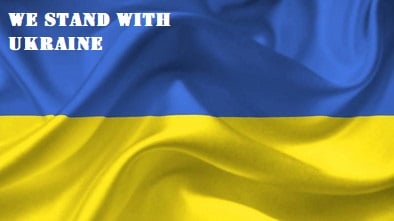The Richard Pipes Laboratory at the Institute of Political Studies of the Polish Academy of Sciences invites You to take part in the first edition of the Richard Pipes International Conference titled “The Second World War in the Collective Memory and Politics of the Former Eastern Bloc Countries”.
The conference will take place on 22-23 October 2020 in Warsaw.
The aim of the event is to initiate a series of meetings that will provide an opportunity for discussion and exchange of experience among the international scientific community dealing with the history of the USSR and Eastern Bloc countries and their contemporary politics.
The intention of the conference organizers is to draw attention to the Second World War in the social memory and politics of the former Eastern Bloc countries. Despite 75 years having passed since the end of the biggest armed conflict in history, it continues to arouse controversy and affect contemporary international relations. This is certainly a consequence of the multithreaded nature of this landmark event. In contrast to previous conflicts, the Second World War was not only a clash between multimillion-strong armies, but also an unprecedented experience of occupation and total war involving civilians.
A hitherto unknown phenomenon was the extermination of specified population groups, Jews and Roma first and foremost. Over the course of the war smaller conflicts also took place, especially in Central and Eastern Europe, which escape a simple division into camps with totalitarian and authoritarian states headed by Nazi Germany on one side and democratic powers with the participation of the United States and Great Britain on the other. This simple dichotomy was obscured in the region by the involvement of the Soviet Union and the communist guerrillas serving as its armed proxies.
The contemporary collective memory and identity of Central and Eastern Europe societies were shaped largely by the traumatic experiences of the Second World War and the subsequent Soviet domination, specifically up to 1953. In a separate category fall the conflicts between various national movements in Central and Eastern Europe, constituting a result of long-standing historical disputes. In this context, one should mention, among others, the conflict between Ukrainians and Poles in Volhynia and Eastern Galicia, the dispute over Transylvania between Hungary and Romania, and the civil war and ethnic conflict in Yugoslavia.
The multidimensionality of the Second World War and the resulting Cold War meant that both traditional and new media began to play a huge role in the production and dissemination of images of particular events. In the media space there are now mutually antagonistic interpretations of the causes, course and results of the greatest conflict in history. Due to ongoing political struggles, mutually exclusive narratives continue to be an important element in disputes between states, arousing interest among politicians, historians, and the wider public. Since the late 1990s, conflicts over remembrance have been breaking out in the region – from the dispute between Germany and its eastern neighbours over the commemoration of the so-called “expellees” to the media war between Russia and Ukraine over the character of the Euromaidan and Kiev’s new authorities since 2014.
The organizers of the conference are convinced that a meeting between researchers of remembrance, historians, and representatives of other disciplines of the humanities and social sciences will be an opportunity to compare perspectives, discuss controversies and promote dialogue between the participants themselves and the societies they represent.
The organizers are awaiting papers on collective memory and politics of remembrance in the post-Soviet and Eastern Bloc countries with regard to the Second World War, both in terms of military and political activities from September 1, 1939 to May 8/9, 1945, as well as later events resulting from the defeat of the Third Reich and the USSR’s victory in Central and Eastern Europe. As far as the use of the memory of the Second World War is concerned, we are interested in historical and contemporary activities in the field of both domestic and foreign policy.
The proposed theme of the conference concerns:
- occupation in the memory of the peoples of the former Eastern Bloc and Soviet countries;
- contemporary perception of the activities of the combatting armies and politics of the Great Powers;
- genocides and mass crimes committed during the Second World War in modern memory;
- deportations, removals, and expulsions during and after the Second World War in collective memory;
- commemoration of events between the years 1939-1945 in former Eastern Block and Soviet countries;
- presentations of the Second World War in museums in the former Eastern Block and Soviet countries;
- images of the Second World War as an element in international and internal conflicts over memory;
- the use of Second World War narratives in image-building strategies of domestic policy actors and national authorities in international politics.
1) Participation in the conference is free of charge. During the conference meals will be provided.
2) Conference languages: English, Russian and Polish
3) The expected time for presenting each paper is 15 minutes + 5-10 minutes for questions and discussion.
4) The Laboratory Council will ask the best speakers to prepare articles that will then be translated into English (at the expense of the Institute of Political Studies of the Polish Academy of Sciences) and published in a multi-author monograph.
5) Applications for the conference, in the form of an attached questionnaire, should be sent to lab.pipes@isppan.waw.pl by 15 April 2020.
6) The organizers will inform the speakers about the qualification of papers through the Conference Scientific Committee by 1 May 2020.
Conference Director: PhD Przemysław Adamczewski
Conference Secretary: PhD Wojciech Łysek
Application form (MS Word)

